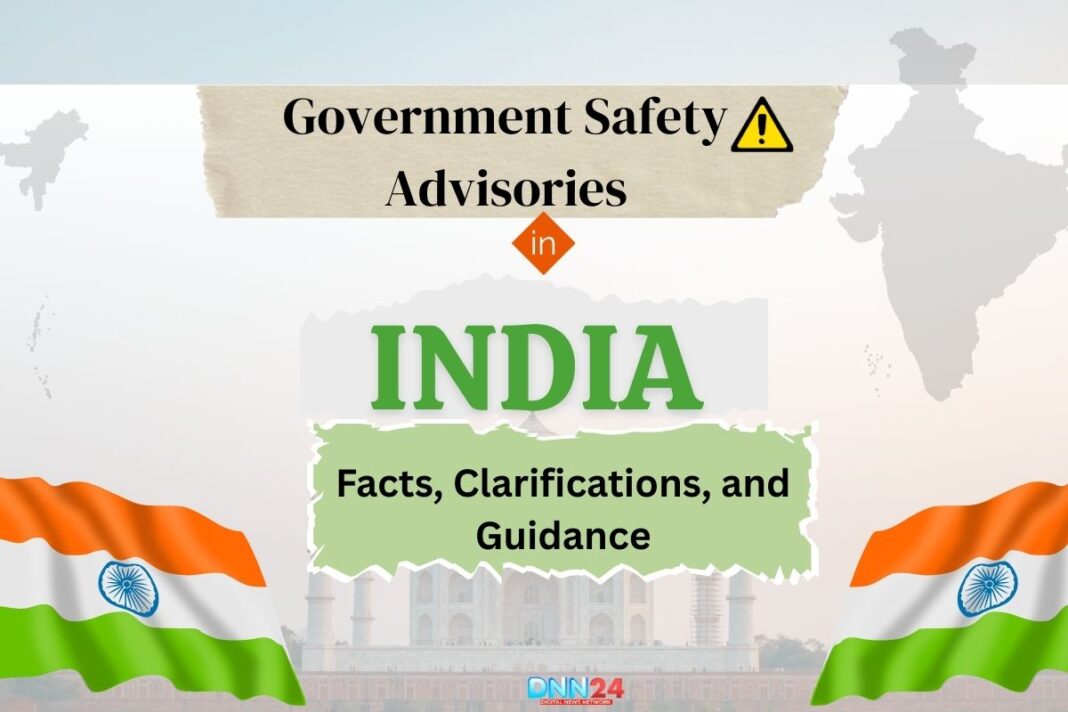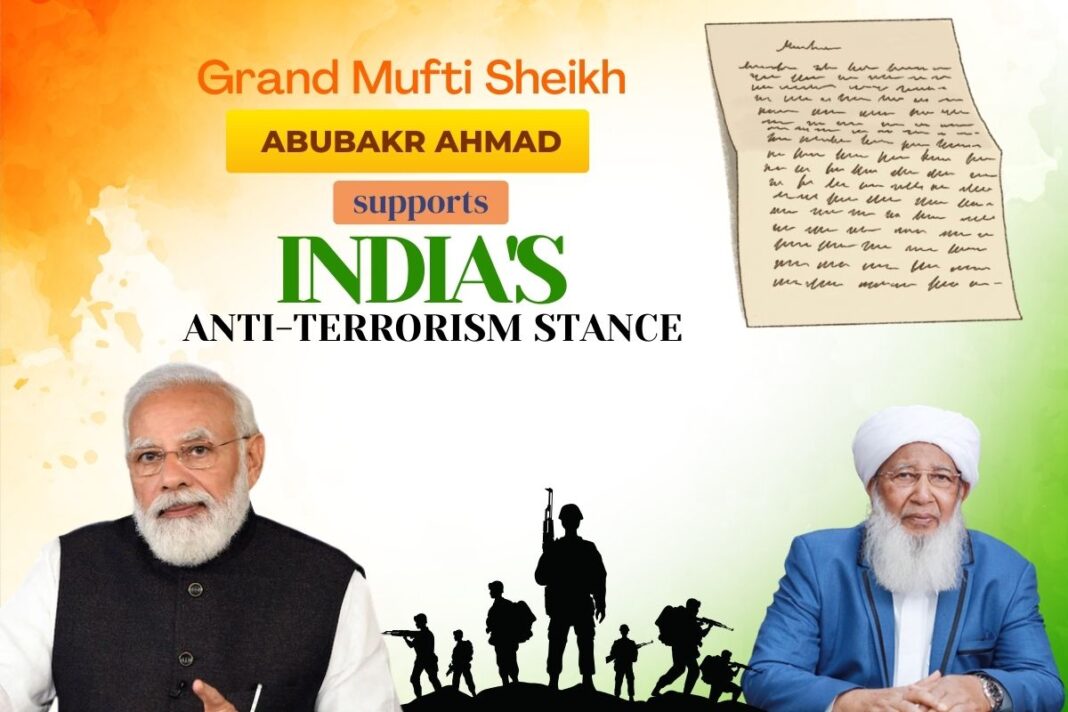India is a vast country with a strong public safety and disaster management system. The Government of India, through official bodies like the Press Information Bureau (PIB), the Ministry of External Affairs (MEA), and the Ministry of Defence, regularly issues safety advisories to keep citizens safe and well-informed. Recently, many rumours and fake advisories have spread on social media, especially during tense situations. This article will explain all the genuine safety advisories, clarify false messages, and assure citizens about the availability of essential items and the importance of not panicking.
Understanding Official Safety Advisories in India
The Government of India issues safety advisories only through official channels like PIB, MEA, and the Ministry of Defence. These advisories guide citizens during emergencies, security threats, or international situations. For example, the MEA recently advised Indians not to travel to Iran or Israel due to the prevailing situation in those regions. Those already in these countries were told to contact Indian embassies, register themselves, and take utmost precautions, including restricting their movements for safety.
The government also issues advisories for specific regions within India. For example, advisories may suggest avoiding travel to certain areas in case of natural disasters, terrorist threats, or civil unrest. These advisories are always based on real-time assessment and are updated regularly. The government ensures that such information reaches the public through press releases, official social media handles, and government websites.
It is important to remember that only advisories from these official sources are genuine. The government has repeatedly asked citizens to ignore messages circulating on WhatsApp, Facebook, or other platforms unless PIB or the concerned ministry confirms them.
Clarification on Viral Fake Advisories: No Need to Stockpile Essentials
Recently, a viral message claimed that the Indian government had advised citizens to stock up on essentials like food, medicines, water, and keep ₹50,000 cash at home due to tensions with Pakistan. This message spread panic among many people, leading to unnecessary hoarding and anxiety.
However, the Press Information Bureau (PIB) Fact Check team quickly clarified that this advisory is fake. On 6th May 2025, PIB stated that the government has not issued any such advisory. There is no instruction from any official department to stock up on food, cash, or medicines. The public was urged to trust only official government sources for credible information and not to believe or forward such fake messages.
“This claim is fake. The government has not issued any such advisory. Beware! Trust only official government sources for credible information.” – PIB Fact Check
This clarification is crucial. The government wants to assure every citizen that there is no shortage of food, medicines, or daily necessities in India. All essential services function smoothly, and there is no need to panic or hoard items.
Availability of Food, Medicines, and Daily Essentials in India
India has a robust system to ensure the continuous supply of food, medicines, and other daily essentials, even during emergencies. The government regularly monitors stocks and supply chains at the national and state levels. During the COVID-19 pandemic and other crises, the government took special steps to ensure all citizens had access to essential items.
The Ministry of Consumer Affairs, Food and Public Distribution, along with state governments, monitors the availability and prices of food grains, vegetables, medicines, and other necessities. In case of any disruption, quick action is taken to restore normal supply. The government also has a network of fair-price shops, ration depots, and medical stores that reach every corner of the country.
In times of disaster or accident, like the Bahanaga train tragedy, the government immediately arranged for cooked food, relief packets, and drinking water for affected people. State and district officials worked around the clock to ensure no one faced any shortage. This shows the government’s commitment to the welfare of its citizens.
There is no government advisory asking people to stock up on food or medicines. The supply of daily essentials is stable, and citizens should avoid panic buying, which can create artificial shortages and inconvenience others.
Government’s Response to Security and Emergency Situations
India faces security challenges at times, especially in border regions or areas affected by terrorism or insurgency. The Ministry of Defence and other security agencies are always alert and prepared to respond to threats. After the recent terrorist attack in Jammu and Kashmir, the Indian armed forces carried out precision strikes against terrorist camps in Pakistan and Pakistan-occupied Kashmir. The government clarified that there was no intention to escalate the situation, but India would respond strongly if needed.
During such times, rumours and false information often spread on social media. For example, after the anti-terrorist operation, some posts claimed that all airports in India were closed. PIB Fact Check immediately clarified that this was fake news. Only some airports near the border had temporary restrictions for civil flight operations, as per standard safety protocols.
The government keeps the public informed about real developments and urges everyone to stay calm and not believe in rumours. The armed forces and police are fully equipped to handle any emergency, and citizens do not need to panic or take unnecessary precautions unless officially advised.
How to Stay Safe and Informed: Simple Tips for Citizens
The government advises all citizens to follow these simple steps to stay safe and well-informed:
- Always rely on official sources like PIB, MEA, Ministry of Defence, and state government websites for advisories and updates.
- Do not forward or believe messages about stocking up on essentials, cash, or other items unless confirmed by official sources.
- In any emergency, follow the instructions given by local authorities and government agencies.
- Avoid travelling to areas with official advisories against travel, such as certain border regions or areas affected by unrest.
- Do not panic or hoard food, medicines, or other daily items. The government ensures a regular supply and support during any crisis.
- Report any suspicious activity or fake news to the authorities.
- Stay calm and help others by sharing only verified information.
By following these simple steps, every citizen can contribute to the safety and well-being of the community.
Conclusion: Trust Official Sources, Stay Calm, and Support Each Other
The Government of India is fully committed to its citizens’ safety, security, and welfare. All advisories are issued through official channels, and there is no need to believe or act on rumours or fake messages. The country has no shortage of food, medicines, or daily necessities. The government has not asked anyone to stock up on essentials or cash. Citizens must stay calm, avoid panic buying, and support each other by sharing only genuine information from trusted sources.
India’s strong disaster management system, efficient supply chains, and alert security forces ensure everyone’s needs are met, even during challenging times. By trusting official advisories and avoiding rumors, we can all stay safe and help build a more resilient and united nation.
Also Read: Indian Government Advisories During the 2025 India-Pakistan Conflict
You can connect with DNN24 on Facebook, Twitter, and Instagram and subscribe to our YouTube channel.



